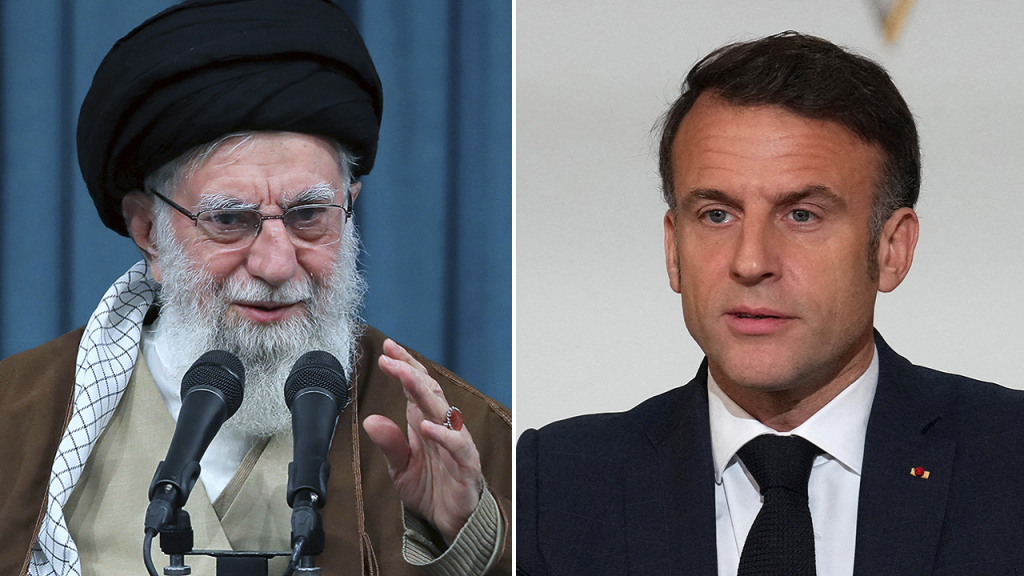Iran’s nuclear ambitions have become a focal point of international concern, with French President Emmanuel Macron recently characterizing the program as nearing a “point of no return.” This assessment underscores the escalating tension surrounding Iran’s nuclear activities and the potential for regional instability. Macron’s warning, delivered during an annual foreign policy conference, highlights the gravity of the situation and the potential consequences if Iran continues its current trajectory. The statement signals a growing unease among European leaders about Iran’s nuclear advancements and the dwindling time frame for diplomatic solutions. Macron’s suggestion of resorting to sanctions mechanisms reflects the serious consideration being given to punitive measures to deter Iran’s nuclear progress.
The urgency of the situation is further emphasized by reports from the International Atomic Energy Agency (IAEA), which indicate that Iran is enriching uranium to levels approaching weapons-grade. This alarming development has prompted diplomatic efforts to de-escalate the situation, with planned meetings between French, German, and British diplomats and their Iranian counterparts aimed at finding a diplomatic resolution. Despite international concern, Iran maintains that its nuclear program is solely for peaceful purposes. However, the rapid advancements in enrichment capabilities and the lack of transparency have fueled skepticism and heightened anxieties about Iran’s true intentions.
The escalating tensions surrounding Iran’s nuclear program have also spurred discussions within the Biden administration about potential military responses. Reports suggest that President Biden was recently presented with various strike options should Iran move decisively towards weaponizing its nuclear capabilities. While President Biden has publicly committed to preventing Iran from developing a nuclear weapon, the specific actions that would trigger a military response remain unclear. This ambiguity underscores the delicate balancing act facing the administration as it seeks to deter Iran while avoiding actions that could further escalate the situation.
The reports of potential military options highlight the seriousness with which the US views the Iranian nuclear threat. While no final decisions have been made, the fact that such options are being considered reflects the growing concern within the US government about the potential consequences of a nuclear-armed Iran. The presentation of these options to President Biden demonstrates the administration’s commitment to exploring all available avenues to prevent Iran from acquiring nuclear weapons, including the use of military force as a last resort. However, the lack of active discussions currently on military strikes suggests that the focus remains on diplomatic efforts and deterrence.
The contrasting narratives presented by Iran and the international community underscore the deep mistrust that permeates the issue. While Iran insists on the peaceful nature of its program, the international community views its actions with suspicion, particularly given the lack of transparency and the rapid advancements in enrichment technology. This fundamental disagreement about the program’s purpose complicates diplomatic efforts and raises the risk of miscalculation and escalation. The international community’s concerns are further amplified by Iran’s human rights record, which includes a reported surge in executions, highlighting the broader challenge posed by the regime.
In conclusion, the Iranian nuclear program stands as a critical juncture, with international concern growing as the country’s enrichment capabilities approach weapons-grade levels. The potential for military action looms large, though diplomatic efforts remain the primary focus. The diverging narratives between Iran and the international community add to the complexity of the situation, while the uncertainty surrounding the US response further complicates the strategic calculus. The coming months will be crucial in determining the trajectory of Iran’s nuclear program and the broader implications for regional stability and international security. The international community must navigate this delicate situation with prudence and resolve, seeking to prevent Iran from acquiring nuclear weapons while avoiding actions that could inadvertently escalate the conflict. The stakes are high, and the need for a peaceful resolution is paramount.

